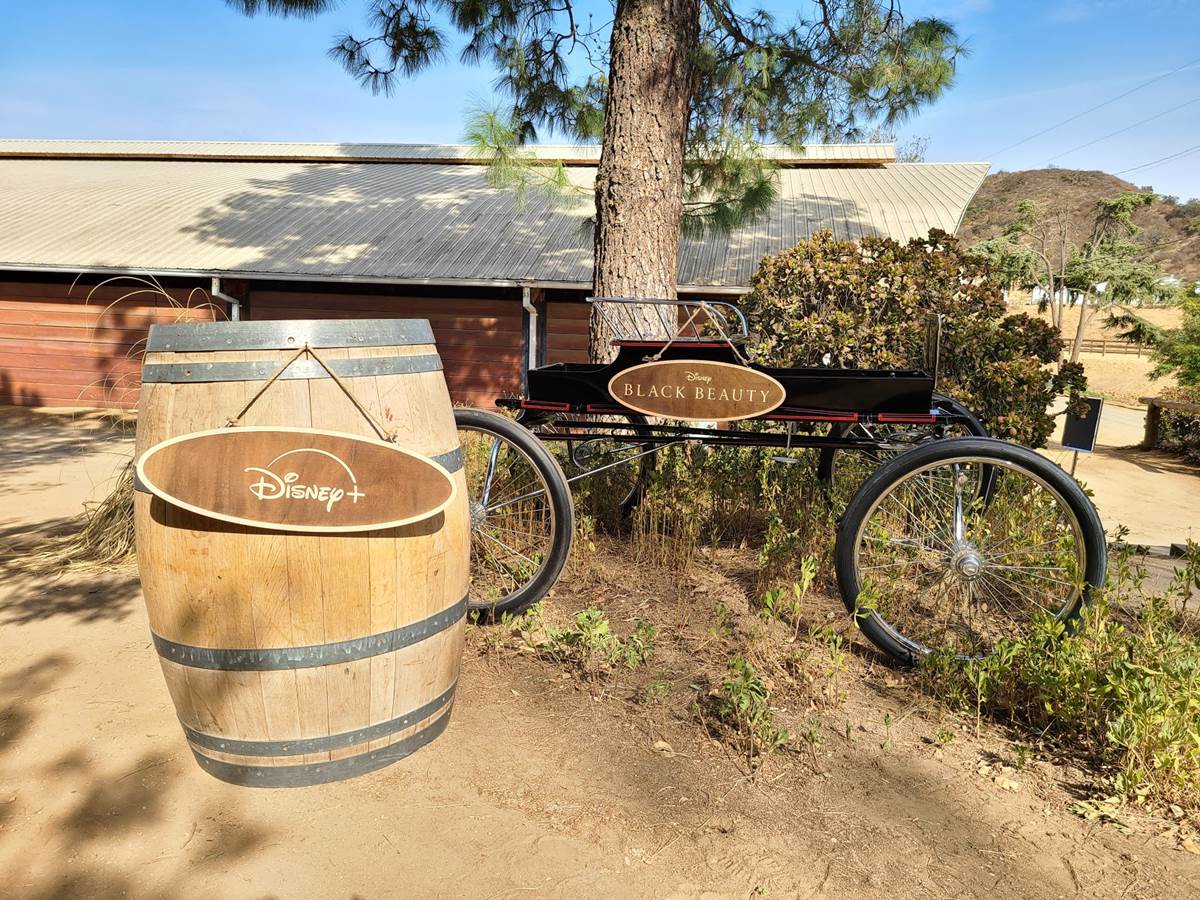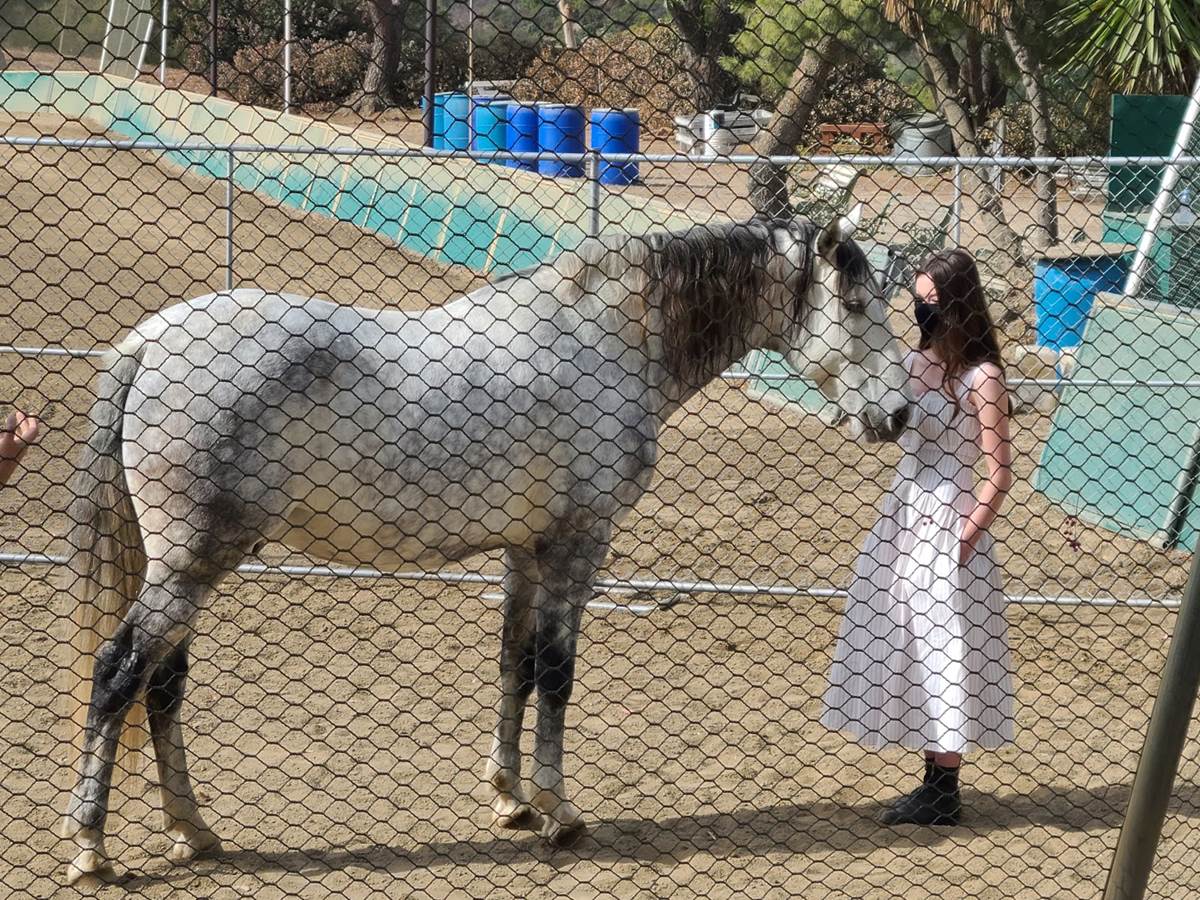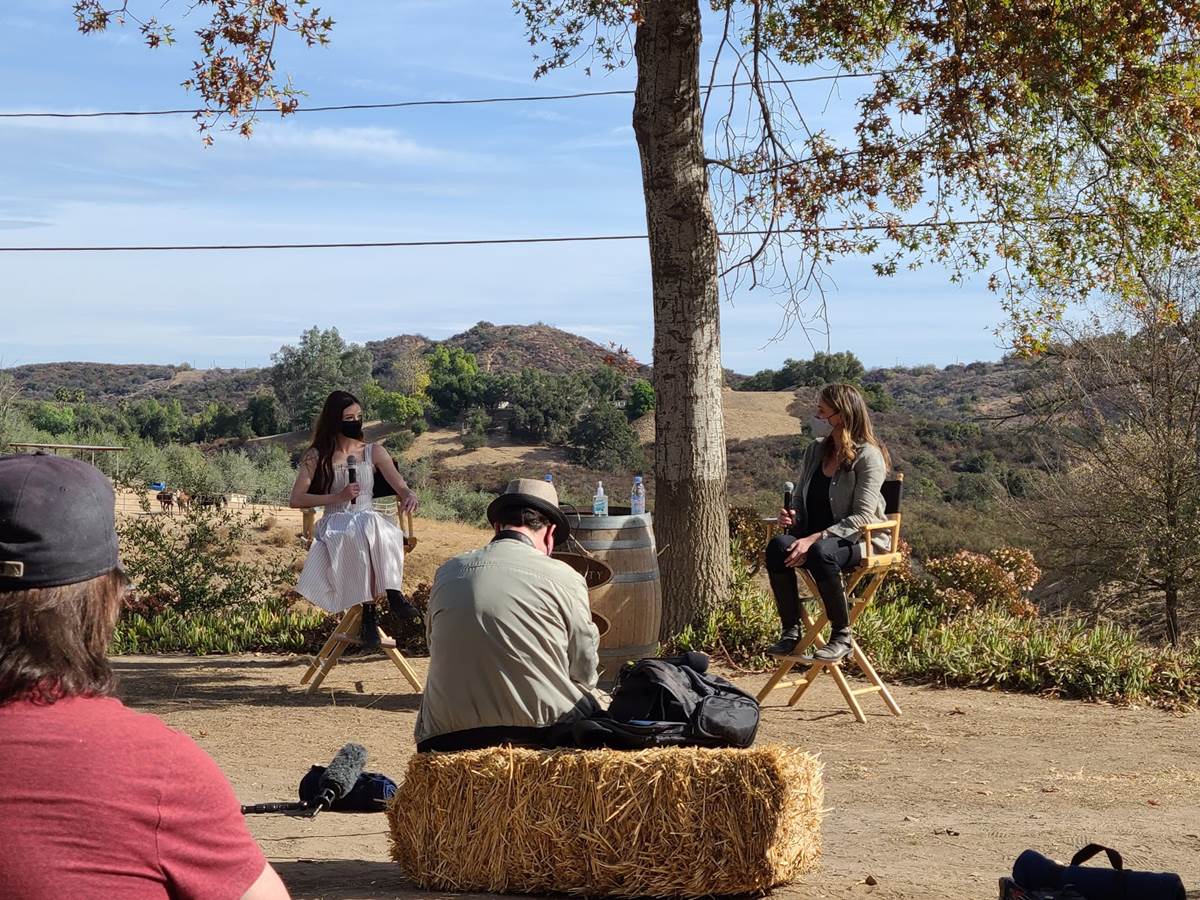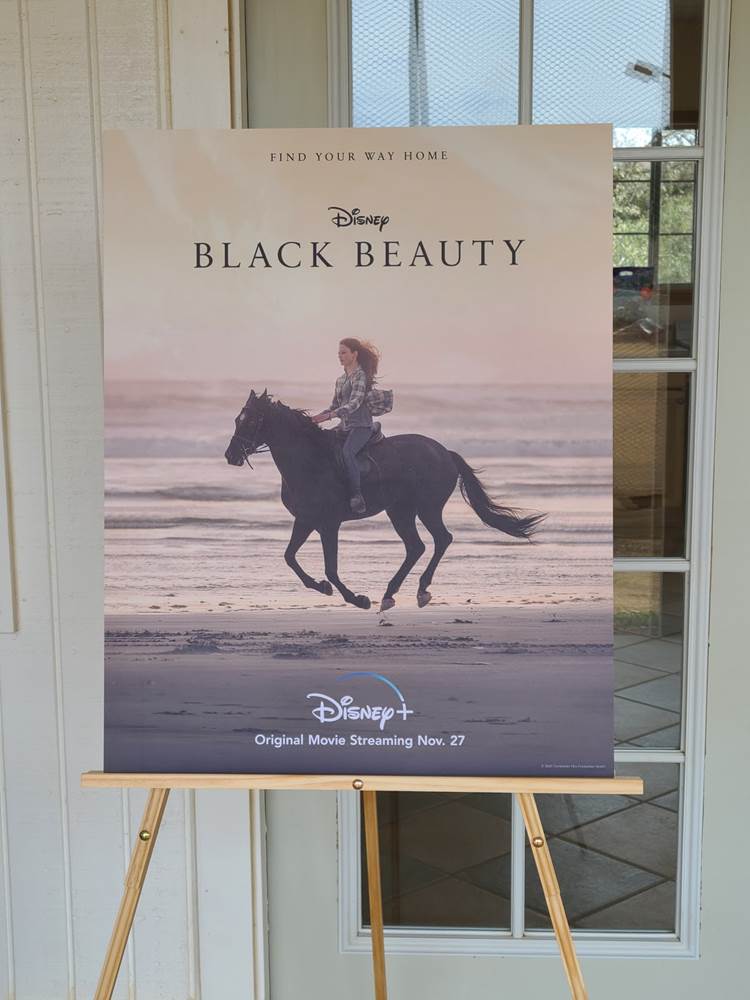Adapting and Updating “Black Beauty” for Disney+
Debuting on Disney+ on November 27, 2020 is Black Beauty, a retelling of the best-selling 1877 novel by Anna Sewell. Black Beauty tells the tale of a beautiful horse that starts his life in a loving home, but when circumstances change, he is passed from person to person and learns that not all humans are kind. Sewell wrote the novel to get it into the hands of grooms and stable boys and people that were working with horses in hopes they would understand that horses can feel what we can – love, loss, great joy, heartbreak and empathy.
Disney’s Black Beauty carries the theme of animal welfare, but brings updates for the modern era. Directed by Ashley Avis, in this new version, Beauty (voiced by Kate Winslet) is a wild mustang in the American west. As a colt she’s wrangled away from her herd and brought to Birtwick Stables in New York. It’s there that she meets and forms a bond with teenager Jo Green (played by Mackenzie Foy).
“With honoring the original characters, locations, storylines and events from Black Beauty I didn’t want to just reconstruct a Black Beauty story. I really wanted to modernize what Anna Sewell wrote. So that had its challenges, one of which is what is Beauty’s origin story? Obviously, Black Beauty was a cab horse in 1880’s London. We have cars today. So, I went back and started researching why Anna Sewell wrote the novel in the first place. It was because when she was a little girl she was crippled and couldn’t walk for a long time, so she was literally carried by horses most of her life. She really revolutionized how we view horse empathy. So in making Beauty a wild horse, which is an under illuminated issue horses are facing in America today, I felt we could honor why she wrote the novel in the first place through our iteration of the movie. I’m hoping that we can spotlight the wild horse issue in an organic, positive way.”
It was Avis’ intention to shed light on how mustangs are being taken from the wild. “It was really important to me in writing Black Beauty for a modern-day audience not just to reinvent the story. I grew up with Black Beauty, it impacted my life as an equestrian, I rode horses most of my life, and the messages of kindness and empathy and doing good by each other and preserving the world. All of that is so timely now. To be able to do that and put forth those messages I’m excited for people to come away from it feeling impassioned, feeling empowered, and to be reminded those are important messages.”
When Beauty arrives at Birtwick Stables she’s frightened, having never been around humans before. She isn’t sure what to make of them. Likewise, Jo Green arrives at Birtwick at the same time having endured a family tragedy. Neither knows what to make of their new surroundings and both are lonely. They learn to trust one another and become friends.
Says Foy, “I never bonded with a horse that intimately before, so being able to just feel someone else’s emotions that strongly each day was a really surreal experience.”
Avis echoed her thoughts, “Some of those unspoken moments where it is true connectivity - that was really important to us throughout the filmmaking process.”
For Foy this part was a dream come true. “I loved Black Beauty. It was one of those books when I was a kid that I read so much that it literally fell apart. I was so nervous, I really hope it’s good, and by the end of it I was just sobbing about how perfect it was and even though it is different, it being a modern adaptation, it still had everything I loved as a kid. I had to be a part of it – there was no question. I feel really happy, not only because I would be able to work with Disney again, but because I knew they would truly take care of the film.”
Authenticity was so important to the film, and Avis really wanted to film real wild horses. Before leaving for South Africa to film the movie, she went to Utah, Wyoming and Nevada and captured some incredible footage of horses in the wild, as well as a real round up. She says, ‘the roundup was heartbreaking, but it really informed how I wanted to approach the stage round up scene in Black Beauty. Filming wild horses and getting a better understanding of them and how to approach the roundup scenes was really interesting.”
After her work on this film Avis has even started a non-profit called the Wild Beauty Foundation “to help illuminate what wild mustangs are going through in the west, which is a big part of Black Beauty.”
Black Beauty serves as a reminder to treat everyone and everything with kindness. It’s a lovely nod to the original novel with very poignant updates for a modern era.






